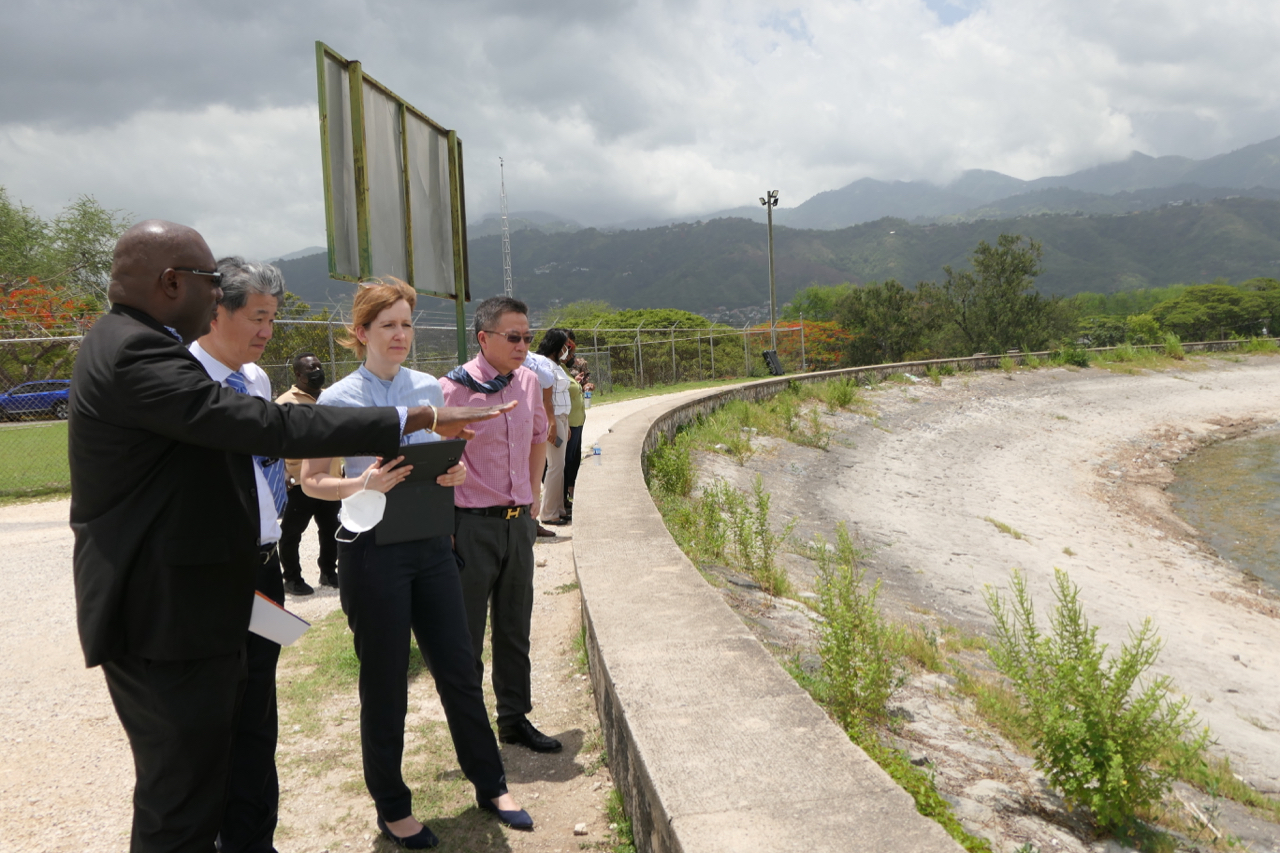NWC Expects To Surpass High-Quality Water Standards Through Partnership With International Atomic Energy Agency
By: , July 1, 2022The Full Story
For years, the National Water Commission (NWC) has been receiving accolades for its water quality, and Acting President Garth Jackson is confident this will continue based on the Commission’s collaboration with the International Atomic Energy Agency (IAEA).
On Wednesday, June 29, during a visit to the NWC’s Corporate office in New Kingston by representatives from the IAEA, including Hua Liu, the Deputy General and Head of the Department of Technical Cooperation for the entity, Jackson explained that the partnership has allowed the NWC to improve its water quality.
“You may or may not be aware that the National Water Commission has been voted as producing the best quality water in the Caribbean over the last 10 years or so, and we expect that we will continue to move beyond the region and to become the leader in water quality as far as we possibly can go. It will be supported by the initiatives which we have entered into with the International Atomic Energy Agency, both in terms of our groundwater quality, as well as a wider water quality issues,” Jackson said.
“The collaboration, which we have entered into and which we have been pursuing, is very critical, very important and something that we wish to see expanded and explored.”
It is a partnership that Liu also appreciates, and as the two entities move forward, he wants the IAEA to assist with strengthening the capacity for NWC’s laboratory, human resources, expertise and training programme.
“In the past, we have had a good cooperation by using radio hydrology technology, and I also hope, in the future, that there will be good cooperation, not only between us but also between different stakeholders in your country,” Liu told the NWC representatives in the boardroom of the NWC’s corporate office in New Kingston.
The NWC’s relationship with the IAEA began in 2014, and the Commission has been the beneficiary of three International Atomic Energy-sponsored National Technical Cooperation Projects. Over the period, the IAEA provided technical assistance and capacity building support for the development of national projects to the NWC, totaling more than €418,000. A major achievement of the programme has been the establishment of Laser Isotope Hydrology Laboratory at the NWC’s Marescaux Road office in Kingston.
This has expanded the NWC’s capacity, inclusive of its personnel, to undertake a wider range of water chemical analyses, other than the water quality services that it currently offers. The isotope and radon results provided by the laboratory can provide technical support and guidance on “technical regulatory” matters, relating to the water supply sustainability and quality. Additionally, it will significantly support the water utility, to participate in future national, inter-regional and international water resources management and climate change-related research and studies.
In addition to the lively discussion at the NWC’s New Kingston office, the IAEA delegation also visited the NWC’s Marescaux Road laboratory and the Mona Reservoir in St Andrew.


